The Ultimate Guide to Concrete Dumpster Rental for Your Construction Project
When embarking on a construction project, efficient waste management is crucial to ensuring timely completion and maintaining site safety. One of the most effective solutions for handling debris and scrap material is utilizing a concrete dumpster rental. These specialized dumpsters are designed to accommodate the heavy and bulky waste generated during construction, making them an invaluable resource for contractors and DIY enthusiasts alike.
In this guide, we will explore the top five reasons why opting for a concrete dumpster rental can streamline your project, improve site organization, and save you both time and money. From understanding the various sizes available to learning about local regulations and disposal processes, our comprehensive overview will equip you with the essential knowledge needed to make an informed decision. Whether you're managing a small renovation or a large-scale construction site, knowing how to effectively utilize a concrete dumpster rental can significantly enhance your overall project efficiency. Join us as we delve into the ultimate strategies for selecting and using a concrete dumpster rental tailored to your construction needs.
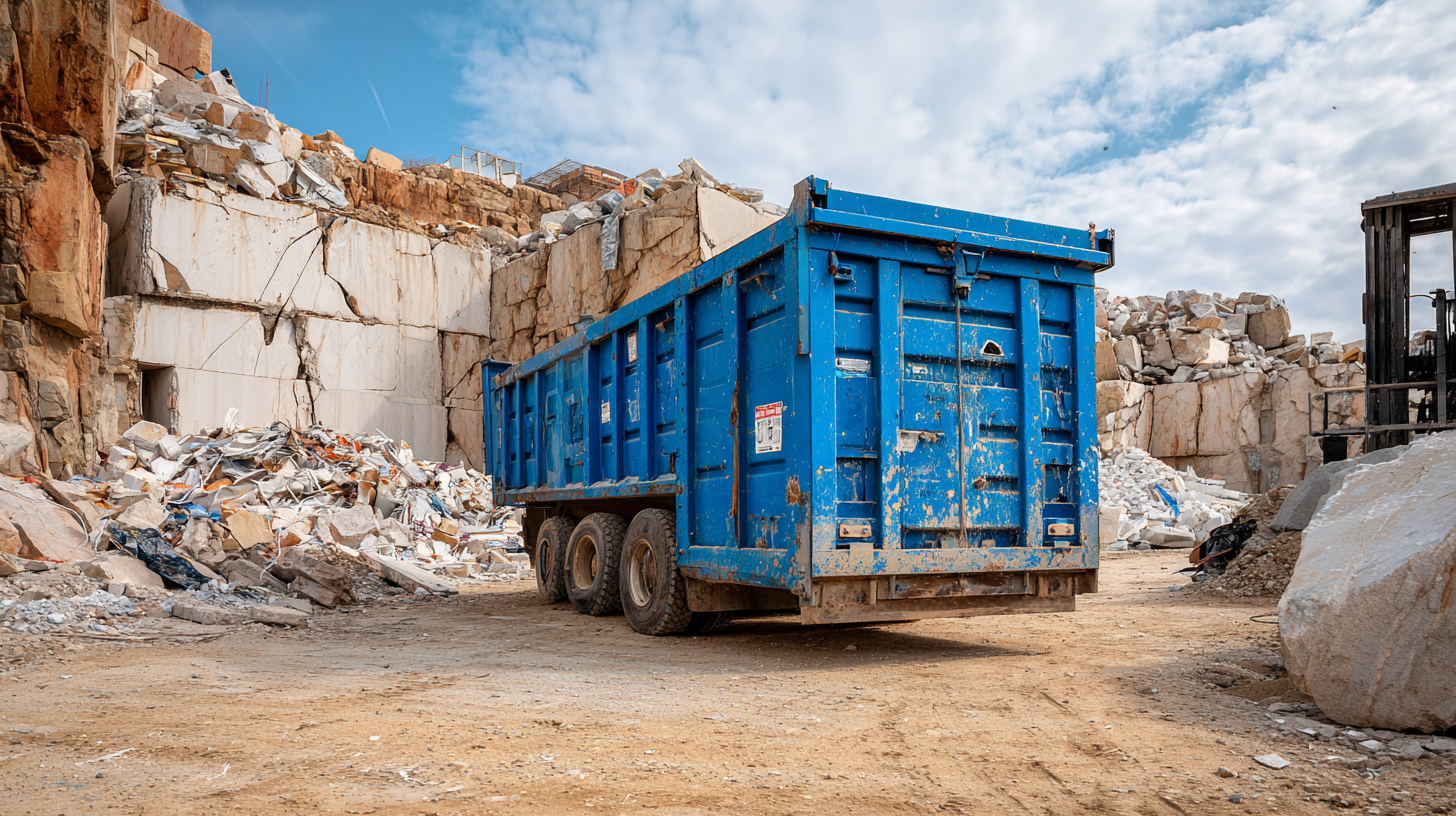
Understanding Your Concrete Dumping Needs for Construction Projects
When embarking on a construction project, understanding your concrete dumping needs is crucial for streamlined operations and environmental compliance. According to a report by the National Ready Mixed Concrete Association, approximately 410 million cubic yards of ready-mixed concrete are produced annually in the U.S., highlighting the significant volume of concrete that construction projects typically handle. As such, an efficient dumpster rental system tailored for concrete disposal not only optimizes waste management but also encourages recycling efforts.
Choosing the right dumpster is essential, as concrete waste cannot be disposed of in standard trash containers. The Environmental Protection Agency (EPA) states that construction and demolition (C&D) materials constitute about 30% of the total waste generated in the U.S., emphasizing the need for specialized disposal solutions. By renting a concrete-specific dumpster, you're ensuring that your project adheres to local waste regulations, minimizes landfill use, and fosters sustainability through potential recycling. It’s advisable to consult with a local dumpster rental service to assess your concrete disposal volume and select a size that fits your project’s unique requirements.
The Impact of Concrete Dumpster Rentals on Construction Projects
This chart illustrates the average rental cost of concrete dumpsters based on the size of construction projects. As the project size increases, so does the need for concrete disposal, reflected in the rising costs.
Evaluating Different Types of Dumpsters for Concrete Debris
When embarking on a construction project, selecting the right type of dumpster for concrete debris is essential to ensure efficiency and compliance with regulations. There are various types of dumpsters designed specifically for heavy materials like concrete. The most common are roll-off containers, which come in different sizes to accommodate varying amounts of debris. Typically, a 10 to 40-yard roll-off dumpster is used, depending on the scale of the project. The capacity not only affects the rental cost but also the number of trips needed for disposal, so choosing the right size can lead to cost savings and time efficiency.
Another important factor to consider is the weight limit of the dumpster. Concrete is much denser than other construction materials, and exceeding the weight limit can result in additional fees or even the inability to pick up the dumpster. Some companies offer specially designed concrete dumpsters that can handle the heavier weight, while others may have specific guidelines on how much concrete can be placed inside. Understanding the local disposal regulations for concrete waste is also crucial, as many municipal landfills have restrictions on how and where concrete can be disposed of. This awareness ensures a smoother project flow and compliance with environmental standards.
The Ultimate Guide to Concrete Dumpster Rental for Your Construction Project - Evaluating Different Types of Dumpsters for Concrete Debris
| Dumpster Type | Capacity (Cubic Yards) | Weight Limit (Pounds) | Ideal Uses | Rental Cost (per week) |
|---|---|---|---|---|
| 10 Yard Dumpster | 10 | 2,000 | Small Renovations, Concrete Removal | $300 |
| 20 Yard Dumpster | 20 | 4,000 | Medium Renovations, Large Cleanouts | $400 |
| 30 Yard Dumpster | 30 | 6,000 | Large Projects, Major Renovations | $500 |
| 40 Yard Dumpster | 40 | 8,000 | For Industrial Projects, Large Volume Debris | $600 |
Key Factors to Consider When Renting a Concrete Dumpster
When renting a concrete dumpster for your construction project, it is crucial to consider various factors that can directly impact your project’s efficiency and cost.
First, assess the size of the dumpster you need based on the volume of the concrete you will be disposing of.
Ensuring you have the correct size not only aids in maintaining a smooth workflow but also helps avoid potential fees associated with overflow or additional pickups.
Another essential factor is the rental duration. Make sure to estimate how long you will need the dumpster on-site and confirm the rental terms with the provider.
This will prevent unexpected costs and ensure that you have ample time to complete your project without the stress of rushing against a deadline.
Additionally, it’s advisable to inquire about the service provider's waste disposal practices.
Some companies ensure that waste is processed in an environmentally friendly manner, which can give you peace of mind as you manage your project.
Engaging a reputable provider can significantly reduce the risk of disputes and complications, enhancing the overall experience of your construction endeavors.
Cost Breakdown: What to Expect When Renting a Dumpster
When planning a construction project, understanding the cost breakdown of renting a concrete dumpster is crucial. According to industry reports, the average price for a concrete dumpster rental ranges from $300 to $600, contingent on the size and rental duration. Most providers offer various sizes, typically from 10 to 40 yards, with larger dumpsters accommodating heavier materials and resulting in higher rental fees. Additionally, most rentals charge by weight, so be prepared for additional costs if your concrete disposal exceeds the weight limit, which can average around $100 per ton over the limit.
Tip: To avoid unexpected expenses, always discuss the weight limits with your rental provider and provide an accurate estimate of your project's debris.
Another factor influencing rental costs is the geographical location. For example, urban areas may have higher rates due to demand and disposal costs. According to a recent study from the Waste Management Association, rental expenses can average 20% higher in metropolitan regions as opposed to rural areas. This variance highlights the importance of obtaining multiple quotes and comparing services within your area.
Tip: Consult local contractors or construction companies for recommendations on reputable dumpster rental services that are both affordable and reliable.
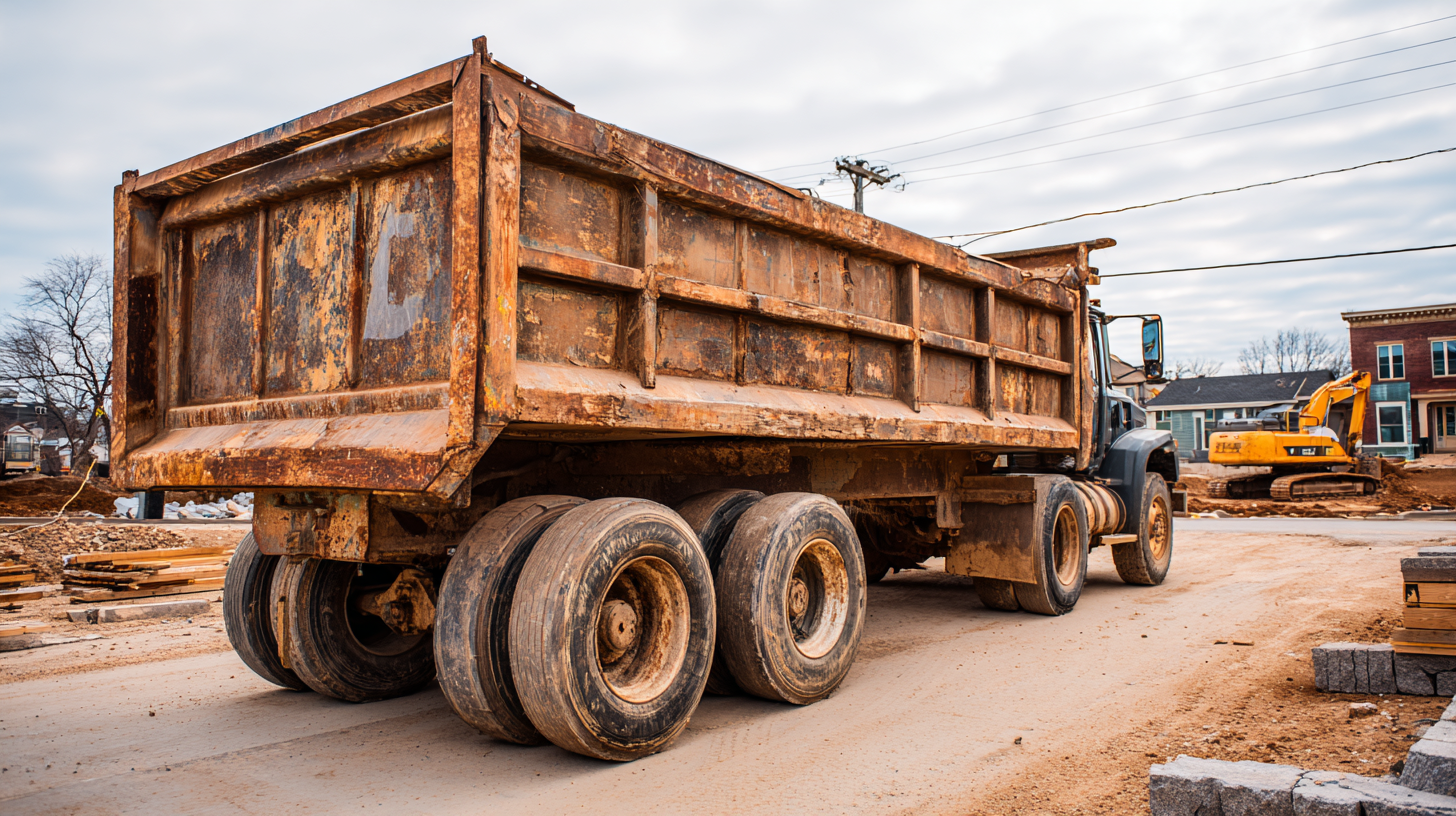
Tips for Efficient Loading and Filling of Concrete Dumpsters
When it comes to managing concrete waste during a construction project, efficient loading and filling of concrete dumpsters can significantly impact both the timeline and budget of the operation. According to a report by the Construction Industry Institute, improper waste management can lead to increased project costs by approximately 30%. Therefore, understanding the best practices for loading concrete dumpsters is crucial for contractors.
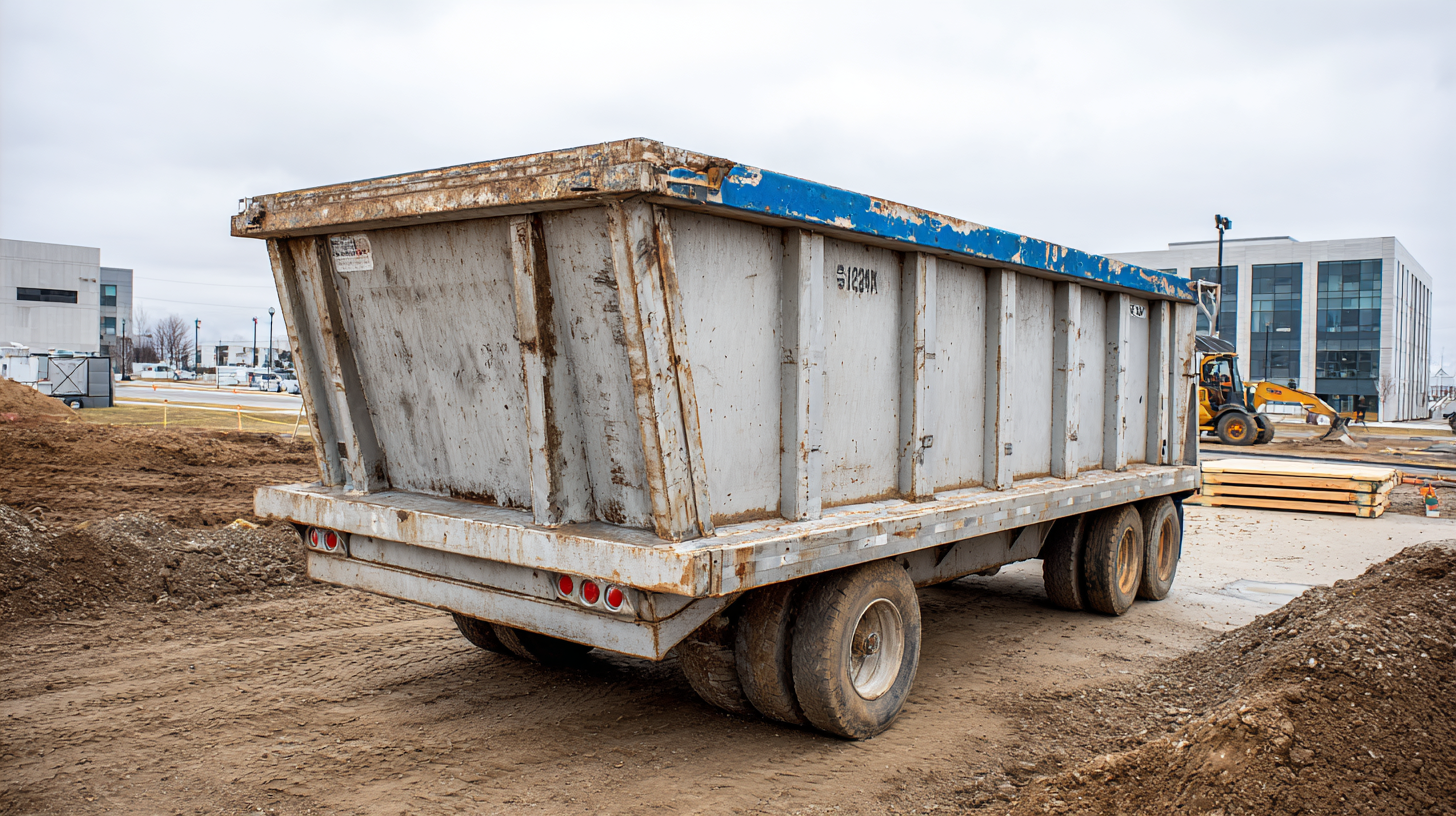
To maximize efficiency, it's essential to break down larger pieces of concrete into smaller, manageable chunks. This not only allows for more effective use of space within the dumpster but also helps in preventing overloading, which could lead to additional fees or fines. Studies have shown that organized loading can increase dumpster capacity by up to 25%. Additionally, arranging the concrete in a systematic manner—placing heavier items at the bottom and lighter ones on top—ensures stability during transport, reducing the risk of accidents or spillage.
Moreover, timing is a key factor in loading concrete dumpsters. The National Waste and Recycling Association indicates that scheduling prompt pick-up and drop-off can further enhance efficiency. By coordinating dumpster rentals with project timelines and other trades onsite, construction teams can avoid delays and keep the project on track. Ultimately, implementing these loading techniques not only ensures compliance with waste regulations but also contributes to the overall success of construction projects.
Related Posts
-
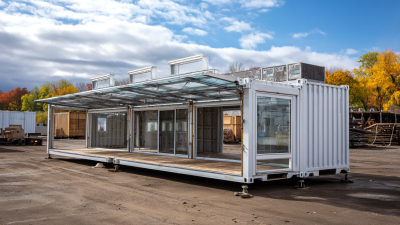
Innovative Uses of Construction Containers That Transform Projects and Save Costs
-

Transforming Spaces: The Rising Trend of Eco-Friendly Construction Containers in Modern Architecture
-
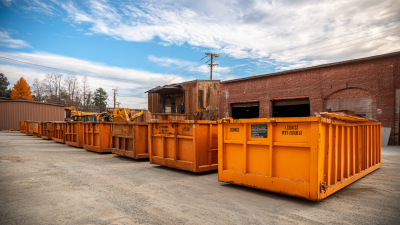
Understanding the Factors Influencing the Cost of Construction Dumpsters for Your Next Project
-
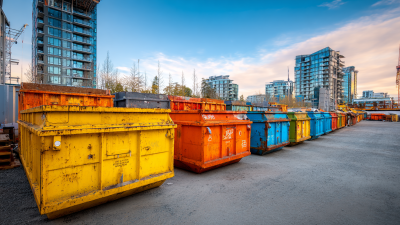
How to Choose the Right Construction Waste Dumpster for Your Next Project: A Complete Guide
-

Maximize Your Project Efficiency with Affordable Construction Waste Bin Rental Solutions
-
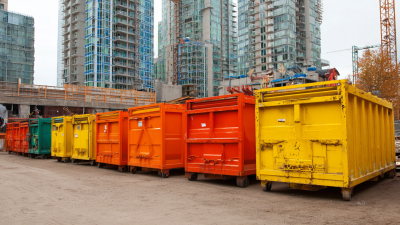
Maximizing Efficiency: The Essential Guide to Choosing the Right Construction Disposal Containers
